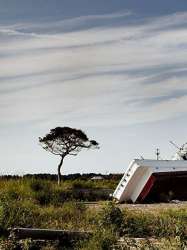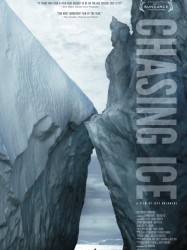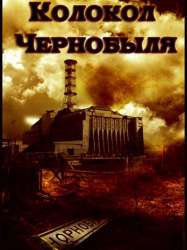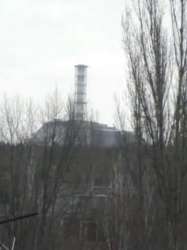The Great Warming is a american film of genre Documentary released in USA on 3 november 2006 with Keanu Reeves
The Great Warming (2006)

If you like this film, let us know!
The Great Warming is a 2006 documentary film directed by Michael Taylor. The film was hosted by Alanis Morissette and Keanu Reeves and even before its November 3, 2006 première helped establish an alliance between Democrats and Evangelicals trying to shake the administration out of its inertia on Climate change mitigation. It is also the anchor for a broad, pro-active coalition ranging from Friends of the Earth to Union of Concerned Scientists to Churches of Christ.
Theatre giant Regal Cinemas released the film in its top 50 markets on the weekend of November 4 to November 5, 2006, which makes the launch three times larger than for any other film of its kind, and highlights the growing currency of the global warming issues in the mainstream.A special program was developed for faith communities, and the film was distributed to over 500 churches, synagogues and mosques across the US.
Featuring elements of the 2005 Public Broadcasting Service special Global Warming: the Signs and the Science, The Great Warming (produced by the same team), it talks to key researchers and reports on social justice and day-to-day impacts as well as emission statistics. It's also populated with everyday people from all over the United States and the planet who are feeling the brunt of global warming, and/or finding innovative ways to tackle it.
While making the movie, producer Karen Coshof was determined not to lose sight of her most important advocate, the person on the street, to make the issue of global warming resonate in every household around the globe. Every person should "feel empowered to act."
In media interviews, Coshof explained that the film attracted an unprecedented coalition of leaders in science, religion, business, environmental activism and education. They have built bridges over historic gaps to support the message of this film to believe in the individual and collective moral responsibility to reverse the growing threats to the environment, and to the health and quality of life.
The effort goes beyond the documentary: with a release timed just before the United States House elections, 2006, the website featured a Questions for Candidates link where voters could send a questionnaire on energy, environment, and taxation to their federal and state candidates. The campaign also includes a Call to Action signed by leaders from every arena of public life, and which can be signed online by anyone who chooses. Advance DVD screenings at schools, churches, and town halls across the country have already mobilized thousands of people to change personal habits and demand action, and coalition members are working to track the effort.
Actors

Keanu Reeves
(Narrator (voice))

Alanis Morissette
(Narrator (voice))
Comments
Leave comment :
Suggestions of similar film to The Great Warming
There are 73 films with the same actors, 8970 with the same cinematographic genres, 2491 films with the same themes (including 43 films with the same 3 themes than The Great Warming), to have finally 70 suggestions of similar films.If you liked The Great Warming, you will probably like those similar films :

The Matrix Revisited (2001)
, 2h3Genres Documentary
Themes Films about films, Films about computing, Post-apocalyptic films, Films about religion, Sports films, Films set in the future, Martial arts films, Documentary films about business, Documentary films about the film industry, Political films, Dystopian films, Documentary films about films, Disaster films
Actors Lana et Lilly Wachowski, Hugo Weaving, Joel Silver, Laurence Fishburne, Keanu Reeves, Carrie-Anne Moss
Rating73%





Un nouveau regard sur Matrix : de la conception au phénomêne.

Genres Documentary
Themes Environmental films, Seafaring films, Transport films, Documentary films about environmental issues, Documentary films about historical events, Documentary films about nuclear technology, Documentary films about technology, Disaster films, Films about earthquakes
Rating67%





Surviving the Tsunami brings together social, environmental, and personal perspectives of the national catastrophe of the Fukushima nuclear meltdown. In the documentary, Kyoko Miyake travels back to her hometown in Namie, Fukushima, to revisit her old life and assess the trauma still lingering from the disaster. She revisits Namie, her mother's hometown and meets the people who depended on the success of the nuclear plant for their livelihood. The film also follows Bunsei Watanabe and Kyoko Miyake's Aunt Kuniko, two people who hope for the rejuvenation of Namie, despite the disaster that has occurred. Despite having lost family, friends, and jobs due to the meltdown and subsequent fear of the contamination zone, these two individuals are determined to rebuild their towns and neighborhoods and bring back the sense of community they once had. The film follows the residents of Namie, with emphasis on the experiences of Aunt Kuniko, as they come to terms with the reality of living in or near the "radiation zone" left in the wake the plant's nuclear meltdown. Surviving the Tsunami offers a different perspective on Japanese culture, national identity, human adaption, and global nuclear energy and proliferation.

Sludge (2005)
Origin USA
Genres Documentary
Themes Environmental films, Documentary films about business, Documentary films about environmental issues, Documentary films about historical events, Documentary films about technology, Disaster films

An Inconsistent Truth (2012)
, 1h29Genres Documentary, Adventure
Themes Environmental films, Documentary films about environmental issues, Disaster films
Rating50%





An Inconsistent Truth is Valentine's investigation into man-made global warming. The title alludes to Al Gore's documentary An Inconvenient Truth. Valentine talks with scientists and politicians who are skeptical of human caused global warming, and explores the culture of the global warming movement; often in a satirical way.

Greedy Lying Bastards (2013)
, 1h29Origin USA
Genres Documentary
Themes Environmental films, Documentary films about environmental issues, Disaster films
Rating59%






Origin USA
Genres Documentary
Themes Environmental films, Documentary films about environmental issues, Disaster films

Chasing Ice (2012)
, 1h20Directed by Jeff Orlowski
Origin USA
Genres Documentary
Themes Environmental films, Documentary films about environmental issues, Disaster films
Rating76%





Acclaimed environmental photographer James Balog heads to Greenland, Iceland and Alaska in order to capture images that will help to convey the effects of global warming. Balog was initially skeptical about climate change when the issue entered scientific discussion, but after his first trip north, he becomes convinced of the impact that humans have on the planet and becomes committed to bringing the story to the public.

The Bell of Chornobyl (1987)
Genres Documentary
Themes Environmental films, Documentary films about environmental issues, Documentary films about historical events, Documentary films about nuclear technology, Documentary films about technology, Disaster films
Rating68%






White Horse (2008)
, 18minutesOrigin USA
Genres Documentary
Themes Environmental films, Documentary films about environmental issues, Documentary films about historical events, Documentary films about nuclear technology, Documentary films about technology, Disaster films
Rating69%





The beginning of the film starts with DeLeo, Bisson and Surkov driving through Kiev. This is introduced as the beginning of their journey to Pripyat, near the ground zero of Chernobyl. Once they reach the outpost outside the exclusion zone, we see that the area surrounding Pripyat is very deserted and dark. Once in the city, we see Surkov's old home, which he explains has been robbed of almost all its belongings due to looters. Yet there are still some mementos in the old apartment, including the wallpaper he and his mother put up, the training bars his father bought for him, an old rubber ball he claims was his favorite and a white horse poster plastered on the wall of his old bedroom. The pain he feels is evident. When he sees an old calendar on a door, he rips a large portion off, claiming "the year ended on April 26th". Outside the door of the apartment, he remarks how he wishes he could stay forever. He throws his old ball through the door and walks out of the apartment complex. The film ends with Surkov snapping some twigs in an old courtyard and then an image of the car they traveled in leaving the exclusion zone.

Aluna (2012)
, 1h31Origin United-kingdom
Genres Documentary, Adventure
Themes Environmental films, Documentary films about environmental issues, Disaster films
Rating73%





Le réalisateur Alan Ereira s'est rapproché des Kogi, une civilation colombienne isolée convaincue qu'il faut cesser de piller et dénaturer le monde.
 Connection
Connection